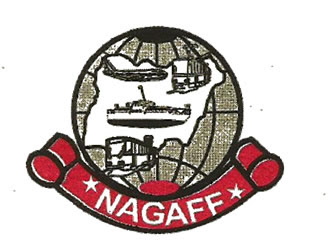President of the
National Council of Managing Directors of Customs Agents (NCMDCA), Mr Lucky
Amiwero has written to the Presidency to explain the difference between customs
brokers and freight forwarders in their professional practice.
National Council of Managing Directors of Customs Agents (NCMDCA), Mr Lucky
Amiwero has written to the Presidency to explain the difference between customs
brokers and freight forwarders in their professional practice.
The
explanation may not be unconnected with the order by the Transportation
Minister, Mr Rotimi Amaehi to the various leaders of customs brokers and
freight forwarders to register with the Council for the Regulation of Freight
Forwarding in Nigeria (CRFFN) or lose their licences.
explanation may not be unconnected with the order by the Transportation
Minister, Mr Rotimi Amaehi to the various leaders of customs brokers and
freight forwarders to register with the Council for the Regulation of Freight
Forwarding in Nigeria (CRFFN) or lose their licences.
Amiwero who is
against this order by the Minister argues that both customs brokers and freight
forwarders are different professionals, adding that compelling customs brokers
to register with the CRFFN was uncalled for.
against this order by the Minister argues that both customs brokers and freight
forwarders are different professionals, adding that compelling customs brokers
to register with the CRFFN was uncalled for.
In the letter, he
argued, “Freight forwarding either as Transport function and legal practice is
not contained anywhere in the Customs and Excise Management Act C45 2004, the
only legal and operating function is the CUSTOM AGENT under section 153-156 of
the Customs and Excise Management Act.
argued, “Freight forwarding either as Transport function and legal practice is
not contained anywhere in the Customs and Excise Management Act C45 2004, the
only legal and operating function is the CUSTOM AGENT under section 153-156 of
the Customs and Excise Management Act.
“Legally, Freight
Forwarding has never being practiced or licensed in Nigeria, but only the
Licensed Customs Agent, so the provision of section 19-(2) of the CRFFN Act has
no relation to Licensed Customs Agents who are legally Licensed and regulated
by Federal Ministry of Finance.”
Forwarding has never being practiced or licensed in Nigeria, but only the
Licensed Customs Agent, so the provision of section 19-(2) of the CRFFN Act has
no relation to Licensed Customs Agents who are legally Licensed and regulated
by Federal Ministry of Finance.”
He described
freight forwarders as transporters by Section 30 of CRFFN Act, while describing
customs agents or brokers as those who by law and practice are involved in
“interpretation, classification, treatment and application of intentional trade
procedure and Government Fiscal policies.”
On the order by the
Minister for registration with the CRFFN, he said this would amount to
duplicated registration, which according to him would eventually create serious
conflict in control due to the individual registration, which according to him
had not been trained on the rudiment of licensed custom agency business.
Minister for registration with the CRFFN, he said this would amount to
duplicated registration, which according to him would eventually create serious
conflict in control due to the individual registration, which according to him
had not been trained on the rudiment of licensed custom agency business.
He added that “the
duplicated regulation will seriously affect Nigeria Customs as regards the
individual memberships who are not licensed, there will be double regulation
that will lead to conflict between Nigeria Customs Service and the CRFFN, with
compliance, sanction and enforcement of the (CEMA), which is strange to the
freight forwarders, who are transporters.”
duplicated regulation will seriously affect Nigeria Customs as regards the
individual memberships who are not licensed, there will be double regulation
that will lead to conflict between Nigeria Customs Service and the CRFFN, with
compliance, sanction and enforcement of the (CEMA), which is strange to the
freight forwarders, who are transporters.”

































































